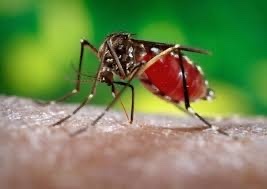
Zika Virus infection is caused by the Zika Virus (ZIKV) belonging to the Flaviviridae family. The virus is majorly spread and transmitted by infected daytime biting female Aedes aegypti and Aedes albopictus mosquitoes which are typically active from dawn to dusk.
There is evidence that Zika Virus is also transmitted by other mosquitoes belonging to the Aedes genus. The virus can be very dangerous as it can also be transmitted from a pregnant woman to her fetus.
The Zika Virus can be presently located in areas like Mexico, Central America, South America, the Caribbean, tropical areas of Southeast Asia, Oceania, and some parts of Africa although it is not all that prominent in Nigeria. All travellers are at high risk to be infected with the virus especially long-term travellers and aid or missionary workers going to areas where Zika Virus is endemic are at greater risk.
The dangers of this Zika Virus is that it is associated with neurological complications which are; Guillain-Barré syndrome (progressive muscle weakness that can lead to temporary paralysis) and microcephaly (decreased head size which may lead to developmental delays) in infants born to pregnant women infected with the virus.
Symptoms of Zika Virus
In the majority of cases, Zika Virus infection is asymptomatic – persons do not exhibit symptoms indicating how dangerous and powerful the virus is because a carrier might not even know that he/she has such virus in their body system . Those with symptoms usually get ill 3-12 days after being bitten by an infected mosquito. Symptoms include
• mild fever
• headache
• muscle and joint pain
• nausea
• vomiting and
• general malaise.
The illness is characterized by pink eye (inflammation of the conjunctiva), a skin rash with red spots on the face, neck, trunk, and upper arms which can spread to the palms or soles, and sensitivity to light. Some may also have a lack of appetite, diarrhea, abdominal pain, constipation, and dizziness.
Treatment of Zika Virus
Most people fully recover from the illness within 7 days. Treatment includes supportive care of symptoms. There is no antiviral treatment available.
The Zika Virus is related to Dengue, Yellow Fever, West Nile Virus, and Japanese Encephalitis and it is misdiagnosed for Dengue and Chikungunya.
Prevention of Zika Virus
Travellers going to areas with Zika Virus should take meticulous measures to prevent mosquito bites during the daytime. There is currently no preventive medication or vaccine against Zika Virus.
• Use a repellent containing 20%-30% DEET or 20% Picaridin on exposed skin. Re-apply according to manufacturer’s directions.
• Wear neutral-coloured (beige, light grey) clothing. If possible, wear long-sleeved, breathable garments.
• If available, pre-soak or spray outer layer clothing and gear with permethrin.
• Get rid of water containers around dwellings and ensure that door and window screens work properly.
• Apply sunscreen first followed by the repellent (preferably 20 minutes later).
